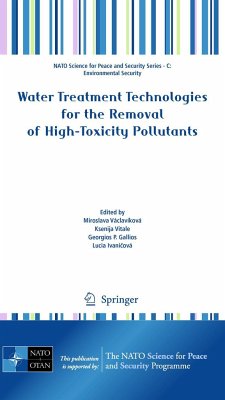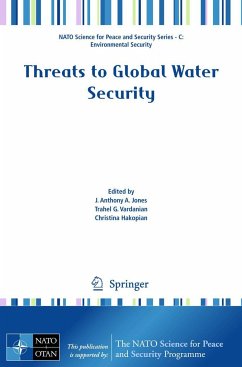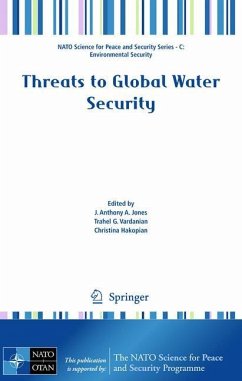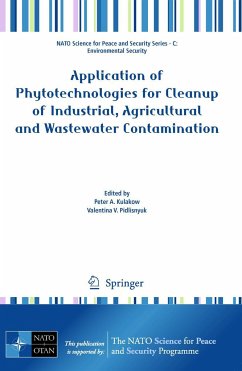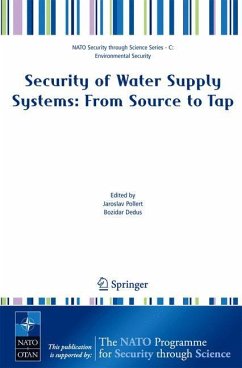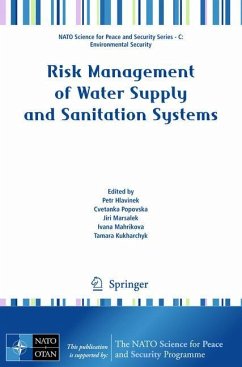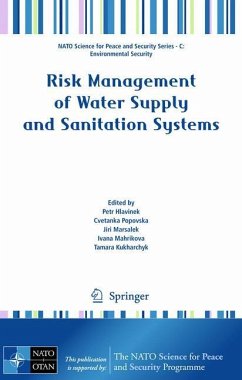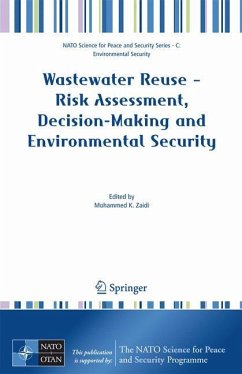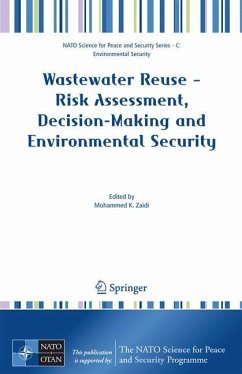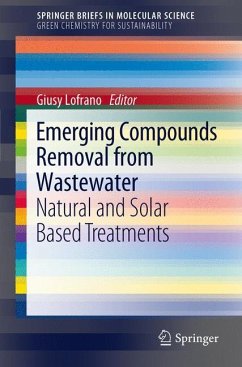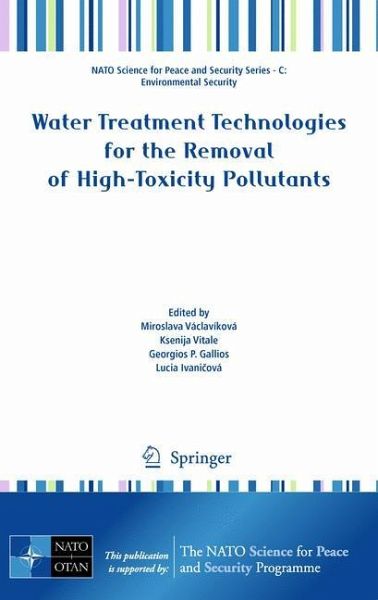
Water Treatment Technologies for the Removal of High-Toxity Pollutants
Versandkostenfrei!
Versandfertig in 6-10 Tagen
166,99 €
inkl. MwSt.
Weitere Ausgaben:

PAYBACK Punkte
83 °P sammeln!
Water is essential for life, a strategic resource for every country and population. Its availability and sanitary safety is highly connected with the health and economy status of population. Burden of disease due to polluted water is a major public health problem throughout the world. Many pollutants in water streams have been identified as toxic and harmful to the environment and human health, and among them arsenic, mercury and cadmium are considered as high priority ones. Providing population with safe drinking water became the priority and at the same time a big challenge for the modern so...
Water is essential for life, a strategic resource for every country and population. Its availability and sanitary safety is highly connected with the health and economy status of population. Burden of disease due to polluted water is a major public health problem throughout the world. Many pollutants in water streams have been identified as toxic and harmful to the environment and human health, and among them arsenic, mercury and cadmium are considered as high priority ones. Providing population with safe drinking water became the priority and at the same time a big challenge for the modern society. Many funding agencies in various countries have assigned a high priority to the envir- mental security and pollution prevention. UN, being one of them, launched the "International Decade for Action: Water for life 2005-2015. " Therefore, today's political and social climate presents an important opportunity to implement principles of sustainable development and to preserve resources essential for future life. This process requires interdisciplinary approach; it is critically important to stimulate interactions between medical doctors, chemists, physicist, materials scientists, engineers and policy makers, which are already experienced in their specific areas. It is also our ethical obligation to preserve existing water resources and existing eco systems enhancing their biodiversity. The NATO Advanced Research Workshop "Water Treatment Te- nologies for the Removal of High-Toxicity Pollutants" took place on September 13-17, 2008 in Kosice, Slovak Republic.





